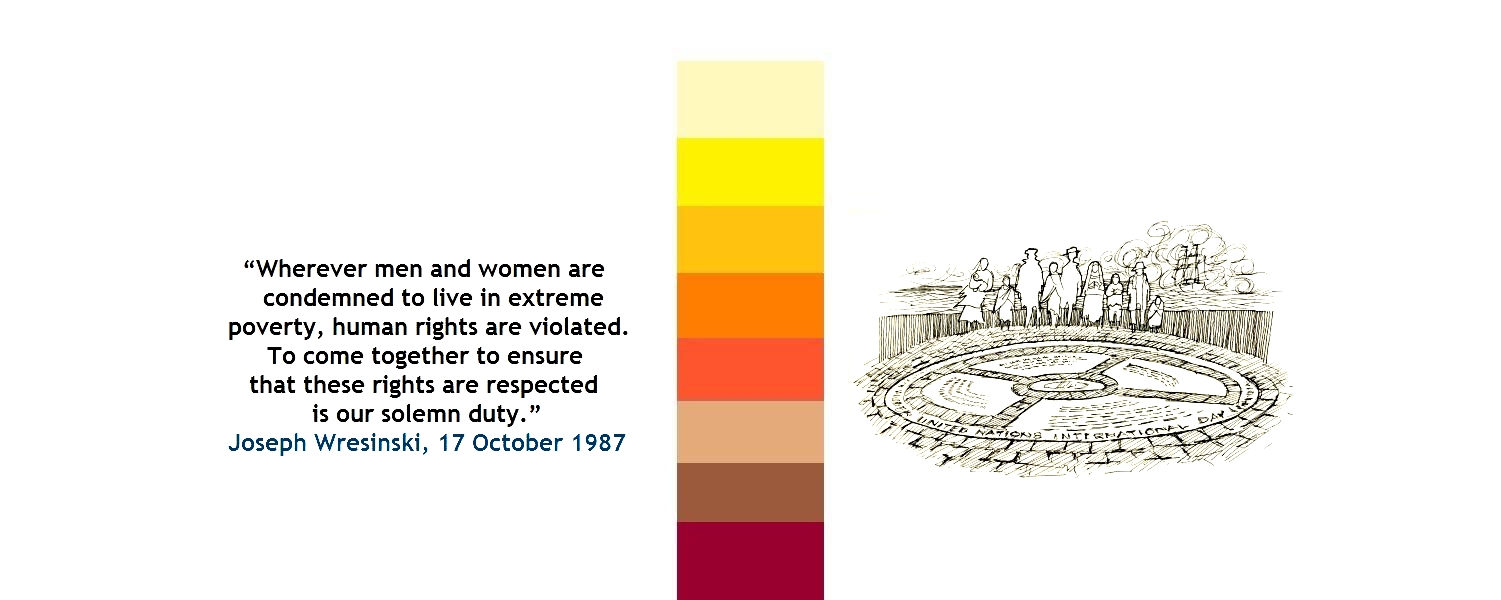 Here is an extract of the concept note prepared by the International 17 October Committee for #EndPoverty Day 2016 :
Here is an extract of the concept note prepared by the International 17 October Committee for #EndPoverty Day 2016 :
“The worst thing about living in extreme poverty is the contempt, that they treat you like you are worthless, that they look at you with disgust and fear and that they even treat you like an enemy. We and our children experience this every day, and it hurts us, humiliates us and makes us live in fear and shame.” says Edilberta Béjar, an anti-poverty activist from Peru.
When people talk about their experiences with living in poverty they reveal these important psychological aspects of poverty. People living in poverty are acutely aware of their lack of voice, power, and independence, which subject them to exploitation, discrimination and social exclusion. Their poverty makes them vulnerable to indignity, rudeness, humiliation, and inhumane treatment by people who work in the institutions and organizations from whom they seek help. People living in poverty also suffer the pain brought about their inability to fully participate in community life and which leads to a breakdown of social relations.
Therefore, in order to fully understand poverty in all its dimensions, policy makers must focus attention on key non-material aspects of poverty— such as shame, humiliation and social exclusion — that affect people’s lives and their human dignity. Improved data, including better indicators, are needed because being able to measure and understand poverty in a multidimensional way enriches our understanding of poverty and enables more responsive and effective strategies and policies to overcome poverty in all its forms.
Effective and meaningful participation is not only the right of every individual and group to take part in public affairs, but it also promotes social inclusion and ensures that policies to combat poverty in all its forms are sustainable and respect the true needs and human dignity of people in poverty.
Full Concept Note Here!

